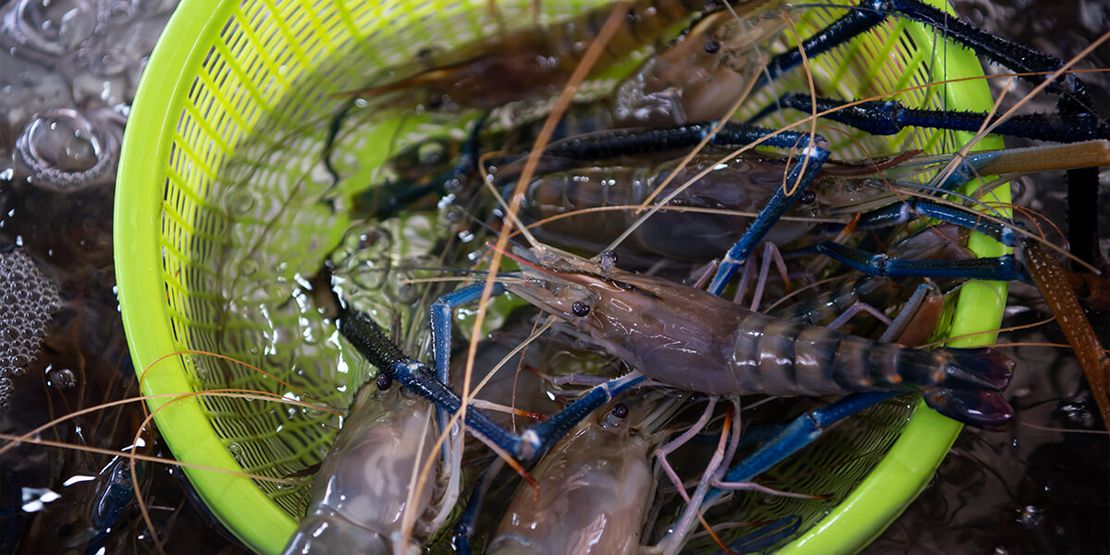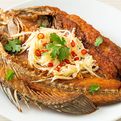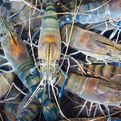Shrimp Farming in Thailand: Navigating Challenges and Embracing Sustainability
Thailand's shrimp farming industry stands as a cornerstone of the nation's economy, playing a pivotal role in its seafood export sector. Originating from humble beginnings in the 1980s, this industry has flourished into a vital source of income and employment for countless individuals across the country. However, amidst its remarkable growth, the sector grapples with a myriad of challenges, from disease outbreaks to sustainability concerns.
In this comprehensive exploration, we delve into the complexities of Thailand's shrimp farming landscape, highlighting both the hurdles it faces and the strides it has taken towards a more sustainable and prosperous future.
Disease Management: Battling the Invisible Threat
Disease outbreaks pose a significant threat to Thailand's shrimp farming industry, wreaking havoc on productivity and profitability. Early Mortality Syndrome (EMS), caused by a virulent bacterium targeting shrimp digestive systems, stands as a prominent adversary. To combat this menace, concerted efforts from government bodies and industry stakeholders have been channeled into bolstering disease management strategies. Enhanced biosecurity measures, coupled with advancements in disease surveillance and rapid response protocols, serve as crucial pillars in safeguarding shrimp populations and mitigating economic losses.
Moreover, ongoing investments in research and development underscore a collective commitment to staying one step ahead of emerging pathogens, ensuring the resilience of Thailand's shrimp farming sector against disease threats.
Pursuing Sustainable Practices: Balancing Growth and Environmental Responsibility
As the global demand for shrimp escalates, Thailand's shrimp farming industry faces mounting pressure to meet production targets while upholding environmental stewardship principles. However, the indiscriminate use of chemicals and antibiotics has fueled concerns over environmental degradation and the proliferation of antibiotic resistance. In response, regulatory interventions and industry-wide initiatives have been deployed to promote sustainable farming practices.
From stringent regulations governing chemical usage to the adoption of eco-friendly farming techniques, such as organic feed formulations and mangrove restoration initiatives, stakeholders are actively charting a course toward a more sustainable future. By embracing a holistic approach that harmonizes economic viability with ecological integrity, Thailand's shrimp farming industry endeavors to foster a legacy of responsible resource utilization and environmental preservation.
Government Support and Industry Collaboration: Paving the Path to Progress
Central to the resilience and evolution of Thailand's shrimp farming industry is the unwavering support from government agencies and collaborative partnerships within the sector. Through strategic policymaking and financial incentives, the government has catalyzed innovation and sustainable practices across the industry value chain.
Furthermore, proactive engagement with industry associations, research institutions, and international stakeholders has facilitated knowledge exchange and technological advancements, propelling Thailand's shrimp farming sector to new heights of productivity and competitiveness.
Harnessing the synergies of public-private partnerships, stakeholders are poised to address shared challenges, capitalize on emerging opportunities, and chart a collective course towards a thriving and sustainable shrimp farming landscape.
The Road Ahead: Embracing Opportunities and Overcoming Challenges
Thailand's shrimp farming industry stands at a critical juncture, navigating a complex terrain of challenges and opportunities. While disease outbreaks and sustainability concerns loom large, concerted efforts toward innovation, collaboration, and regulatory compliance signal a promising trajectory for the sector.
By embracing sustainable practices, leveraging technological advancements, and fostering robust partnerships, Thailand's shrimp farming industry is poised to unlock its full potential, ensuring enduring prosperity for the nation, its people, and the environment.
As the industry marches forward, guided by a shared vision of resilience and sustainability, it reaffirms its pivotal role in driving economic growth, fostering social well-being, and preserving the natural heritage of Thailand for generations to come.
Recommended for you
Top 10 Best and Most Popular Dining Restaurants in Phuket
Tle (Hungry Bear)
Global Shrimp Industry: Knowing the Key Players and Dynamics
Riley Sinclair (Digital Aqua Bear)
Top 10 Free Things Anyone Can Do In Bangkok
Rowan (Guinness Bear)















